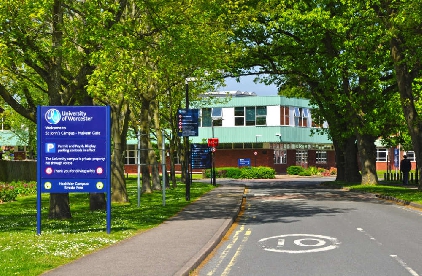
The University of Worcester has been selected to run a range of new short education courses as part of a national pilot.
The 16 short courses to be provided by the University's School of Education will help learners upskill and gain the knowledge they need to support some of the most vulnerable and disadvantaged children in society, while supporting the Government's education catch up agendas post Covid-19.
The University successfully bid for more than £130,000 as part of an initiative trialling higher education short courses, which was set up by the Office for Students on the request of the Department for Education. It is one of 20 providers chosen to develop such courses in anticipation of the delivery of the Lifelong Loan Entitlement (LLE) available from 2025.
Head of the University of Worcester's School of Education, Catriona Robinson, said: "I am delighted that the University has been chosen as one of the recipients of the short course funding for the pilot. We believe this exciting new policy direction will help to address the skills gap through a flexible blended offer as part of the 'levelling up' agenda. It has the potential to widen access and participation amongst mature learners, support career changers and upskill the existing workforce."
Through consultations with employers, the University identified a particular need for courses focussed on supporting children and young people with special educational needs and disabilities (SEND). The majority of courses will therefore specifically focus on this area. They include Supporting Communication, Speech and Language in the Early Years, Supporting Children and Young People's Development and Learning, Inclusive Approaches to Supporting Learners with SEND, the Psychology of Teaching and Learning, and Mental Health and Wellbeing of Children and Young People.
The University's School of Education is collaborating with The Learning Institute in Cornwall, which delivers a number of qualifications accredited by the University, to provide the courses. The aim is to reach demographics in rural and coastal locations to upskill mature and non-traditional learners, who make up the majority of children's and young people's workforce, or those looking to change careers. The new short courses will be developed from existing qualifications and will commence in September next year.
Ms Robinson added: "Workforce instability amongst educational professionals, support staff and children's services has been exacerbated by the pandemic, along with increased demand to find multi-agency solutions to address the skills gap locally and nationally. The employer consultations were cognisant of these factors when identifying sixteen short courses they would be willing to support."
A spokesperson for the Office for Students, the independent regulator for higher education in England, explained that it "aims to ensure that every student, whatever their background, has a fulfilling experience of higher education that enriches their lives and careers".
The higher education short courses trial is a key part of the Government's approach to delivering the LLE. This provides individuals with a loan entitlement to the equivalent of four years of post-18 education to use over their lifetime. It will be available for both modules and full years of study at higher technical and degree levels. The aim is to enable people to build up learning over their lifetime and choose how and when they study to acquire new skills.
The trial will pilot access to a new student finance product especially designed for learners studying shorter, flexible provision in support of the development of the LLE. It will also test the interest of both students and employers in shorter provision aimed at developing skills needed by employers and the economy.


 Investigation launched after two deaths in Redditch
Investigation launched after two deaths in Redditch

